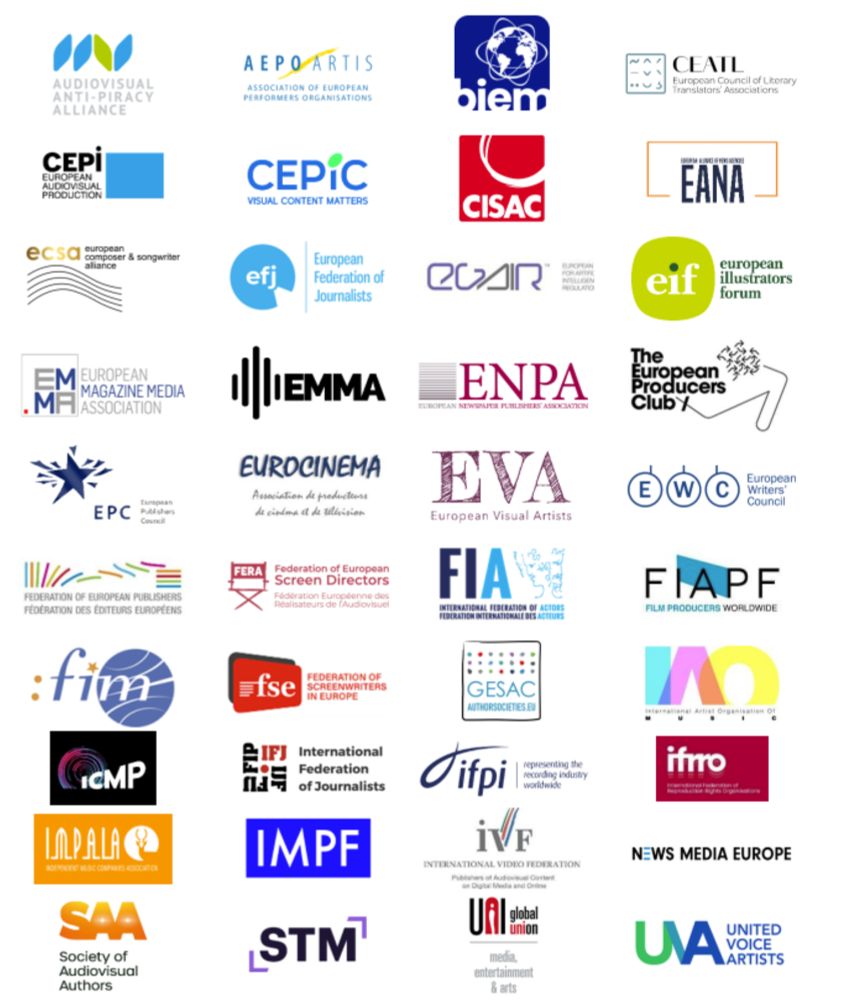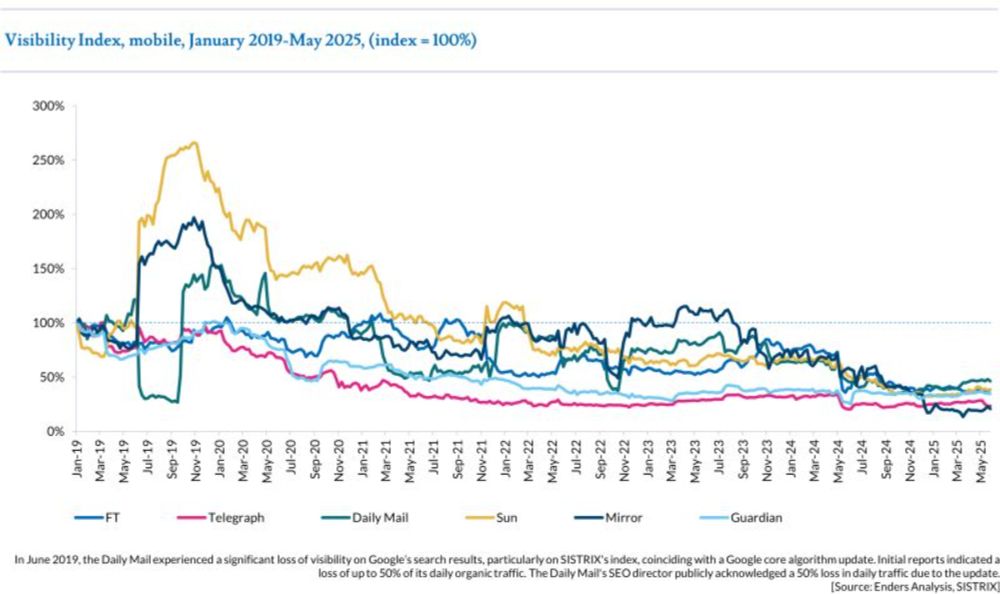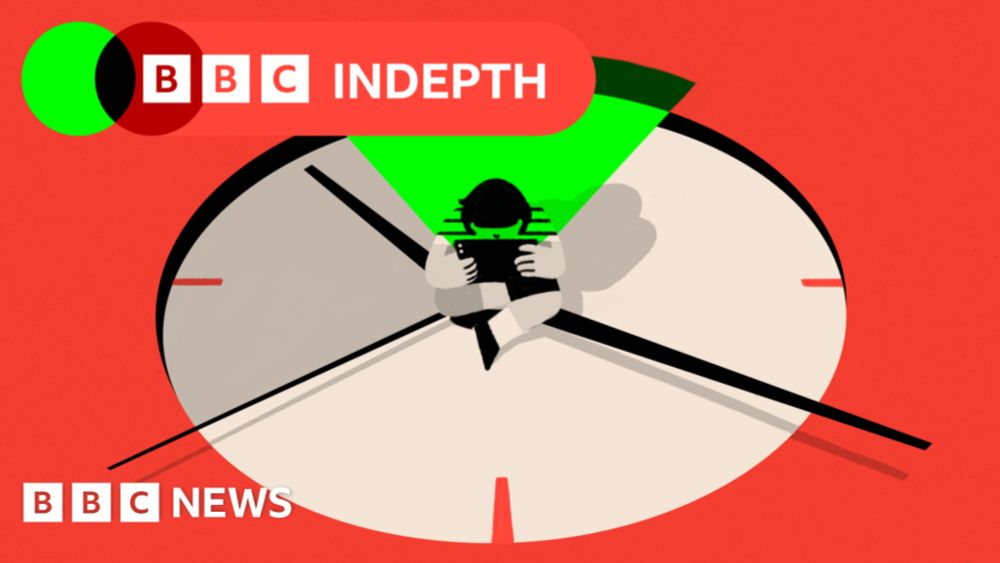
What screen time really does to children's brains
Screen time has become synonymous with bad news - but the science may not be as straightforward as it seems
"Neither Prof Przybylski nor Prof Etchells dispute the grave threat of certain online harms, such as grooming and exposure to explicit or harmful content. But both argue [the] current debate around screen time is in danger of driving it further underground" www.bbc.com/news/article...
01.08.2025 14:22 — 👍 1 🔁 0 💬 0 📌 0
Thanks for your work
01.08.2025 14:04 — 👍 1 🔁 0 💬 0 📌 0
"The Pfizergate saga ends, for now, with the sad truth that seemingly no one can compel von der Leyen to play by the rules of a democracy, in which laws have to be followed, and officials communications are subject to scrutiny, even when it troubles the powerful" @alexfanta.bsky.social writes.
🧵⬇️
01.08.2025 11:53 — 👍 4 🔁 3 💬 1 📌 0
"For the French civil servant, much of the rhetoric around European champions is a convenient distraction for national governments reluctant to reform"
01.08.2025 08:41 — 👍 2 🔁 2 💬 0 📌 0
That access to documents is a fundamental right in the EU, but deleting documents without independent oversight carries zero penalties, feels like a massive loophole.
Time to fix this.
01.08.2025 08:45 — 👍 9 🔁 1 💬 1 📌 0
There is increasing interest in the possibility of using legislation to proactively shape what we see online. I wrote more here for @politiken.dk about the principled and practical questions - if you pick winners, you also create losers politiken.dk/kultur/medie...
01.08.2025 06:14 — 👍 0 🔁 1 💬 0 📌 0
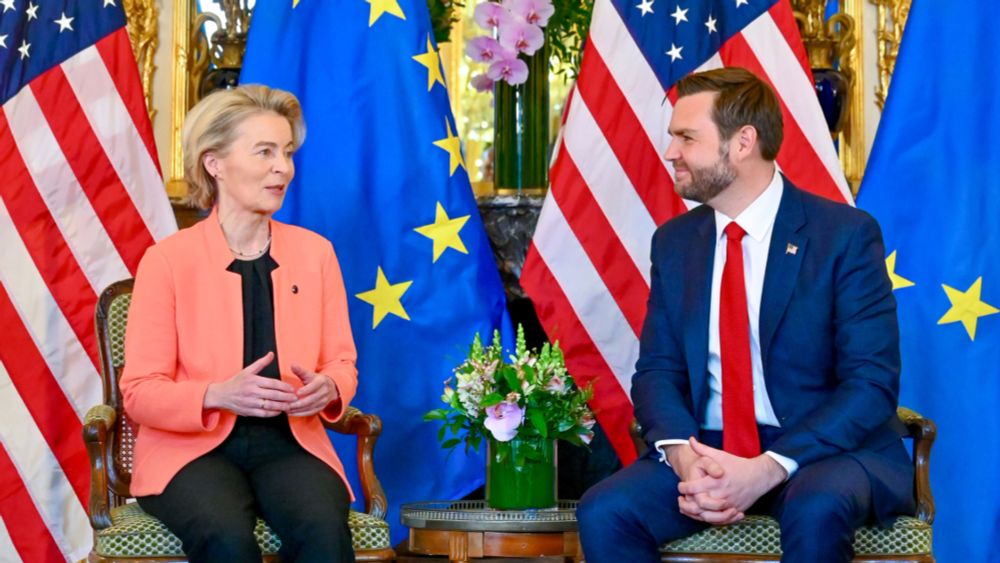
Governments Want to Ease AI Regulation for Innovation, But Do Citizens Agree? | TechPolicy.Press
A 2025 survey across six countries finds that citizens are not in favor of deregulation and allowing AI innovation to progress unchecked.
Many governments are talking AI and tech deregulation - but what about the public? New survey suggests citizens across the six countries covered "are not in favor of the recent push for deregulation and allowing AI innovation to progress unchecked". www.techpolicy.press/governments-...
29.07.2025 10:44 — 👍 7 🔁 2 💬 0 📌 1

How the public checks information it thinks might be wrong
This chapter looks at what people do if and when they want to check something important in the news online that they suspect may be false, misleading, or fake.
Still, many of our respondents do not go to news, and esp. those with lower levels of formal education and those who are more disengaged from conventional forms of politics, are less likely to say they would turn to news media.
Much more here reutersinstitute.politics.ox.ac.uk/digital-news... 3/3
28.07.2025 11:32 — 👍 0 🔁 1 💬 0 📌 0
Generally, the most widely identified are news sources that the respondent trusts, official sources, and search engines.
Overall, we find that most people identify two or more sources they might turn to, with trusted news sources generally one of, or the, most widely named. 2/3
28.07.2025 11:32 — 👍 0 🔁 0 💬 1 📌 0
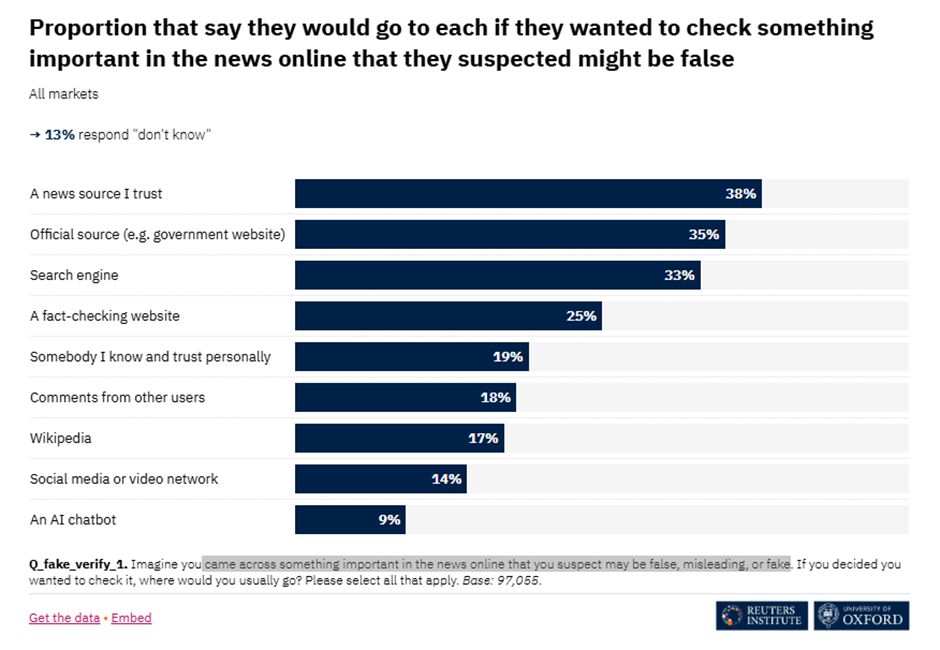
Much of the public is concerned about what is real and fake when it comes to online news
So what do people do if & when they want to check something important in the news that they suspect may be false, misleading, or fake?
Wrote about it here reutersinstitute.politics.ox.ac.uk/digital-news... 1/3
28.07.2025 11:32 — 👍 1 🔁 3 💬 1 📌 0

Joint statement on Gaza from AFP, AP, BBC News and Reuters
24.07.2025 09:11 — 👍 1502 🔁 953 💬 43 📌 71
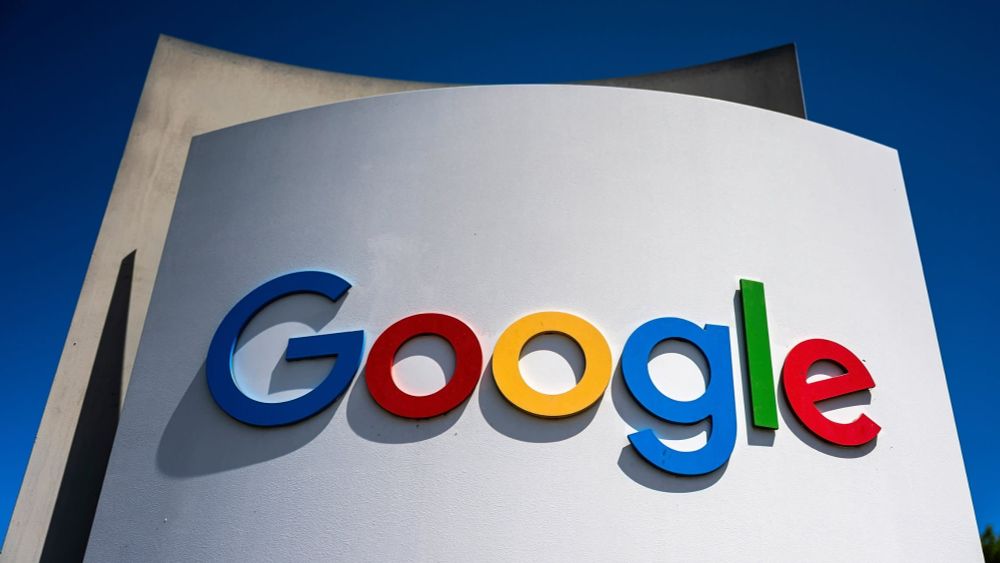
Google earnings keep Silicon Valley’s AI flywheel spinning
Capital expenditure on data centres and such trappings this year will now be about $85bn, versus its prior estimate of $75bn
2) ”Google says AI Overviews are driving 10 per cent more queries in searches where they appear and haven’t dented revenue. Paid clicks were up 4 per cent year on year, the company said in a call with analysts” the @financialtimes.com reports on.ft.com/4me7Cww 3/4
25.07.2025 07:45 — 👍 1 🔁 0 💬 1 📌 0

Google users are less likely to click on links when an AI summary appears in the results
In a March 2025 analysis, Google users who encountered an AI summary were less likely to click on links to other websites than users who did not see one.
1) “Google users who encounter an AI summary are less likely to click on links [than] users who do not see one” and “are more likely to end their browsing session entirely after visiting a search page with an AI summary” @pewresearch.org finds www.pewresearch.org/short-reads/... 2/4
25.07.2025 07:45 — 👍 0 🔁 0 💬 1 📌 0
More zero-click searches, same revenue for Google, less visibility for publishers?
Three things to read together on (1) how users respond to AI summaries, (2) what the company says it means for volume of queries and revenue, and (3) outside analysis on publishers’ visibility 1/4
25.07.2025 07:45 — 👍 7 🔁 4 💬 1 📌 0
Game on!
24.07.2025 11:27 — 👍 4 🔁 0 💬 0 📌 0
As always, I recommend reading @ofcom.bsky.social's work. It is careful, serious about engaging with evidence, and, as here, willing to look towards possible futures beyond the status quo. 5/5
24.07.2025 08:54 — 👍 2 🔁 0 💬 0 📌 0
Such legislation would be hard in most EU member states, but as and when AVMSD is revised, those of us in the EU too can look forward to discussions of if and how one can intervene politically in prominence on digital platforms - picking winners, but also, implicitly, losers 4/5
24.07.2025 08:54 — 👍 0 🔁 1 💬 1 📌 0
There is both a principled decision here about how far one wants politicians involved in platforms’ ranking decisions and pragmatic questions about WHO one would then want to give greater prominence.
We have to keep in mind that attention is likely to be a zero-sum game. 3/5
24.07.2025 08:54 — 👍 2 🔁 1 💬 1 📌 0
There are at least 3 different facets to what Ofcom is floating.
1) Boost public service media
But also, in passing, two other intriguing possibilities -
2) Boost new providers with PSM-like qualities made by new non-PSM providers
3) Boost some existing private providers
2/5
24.07.2025 08:54 — 👍 0 🔁 2 💬 1 📌 0
What would it look like if politicians used legislation to more actively shape what we see on digital platforms?
@ofcom.bsky.social has suggested UK government “may wish to consider legislation” to ensure greater prominence of specific providers on platforms.
www.ofcom.org.uk/siteassets/r... 1/5
24.07.2025 08:54 — 👍 6 🔁 2 💬 1 📌 2
The results are broadly aligned with important work pioneered by a number other academics we build on - part of the added value here from our point of view is the comparative, international design esp. including both Brazil and India to overcome WEIRD bias in the research literature 6/6
23.07.2025 13:03 — 👍 1 🔁 1 💬 0 📌 0
The difference between corrections without a link and corrections with a link was not statistically significant. The corrections had no spillover effects on uncorrected true and false posts. 5/6
23.07.2025 13:03 — 👍 1 🔁 0 💬 1 📌 0
User corrections had small, and often non-significant, effects on the perceived accuracy of false posts and participants’ willingness to share them. The effects were largest in India and Brazil, while they were smallest in the United Kingdom. 4/6
23.07.2025 13:03 — 👍 0 🔁 0 💬 1 📌 0
In the control condition, the posts had no comment. In the correction condition, four false posts included a short user comment debunking them. In the correction with fact-check condition, the user comment included a link to a fact check. 3/6
23.07.2025 13:03 — 👍 1 🔁 0 💬 1 📌 0
We conducted a pre-registered online experiment in 2021 on representative samples of the online population in Brazil, India, and the United Kingdom (N participants = 3,000, N observations = 24,000), Participants rated nine social media posts about COVID-19 (3 true, 6 false). 2/6
23.07.2025 13:03 — 👍 1 🔁 0 💬 1 📌 0
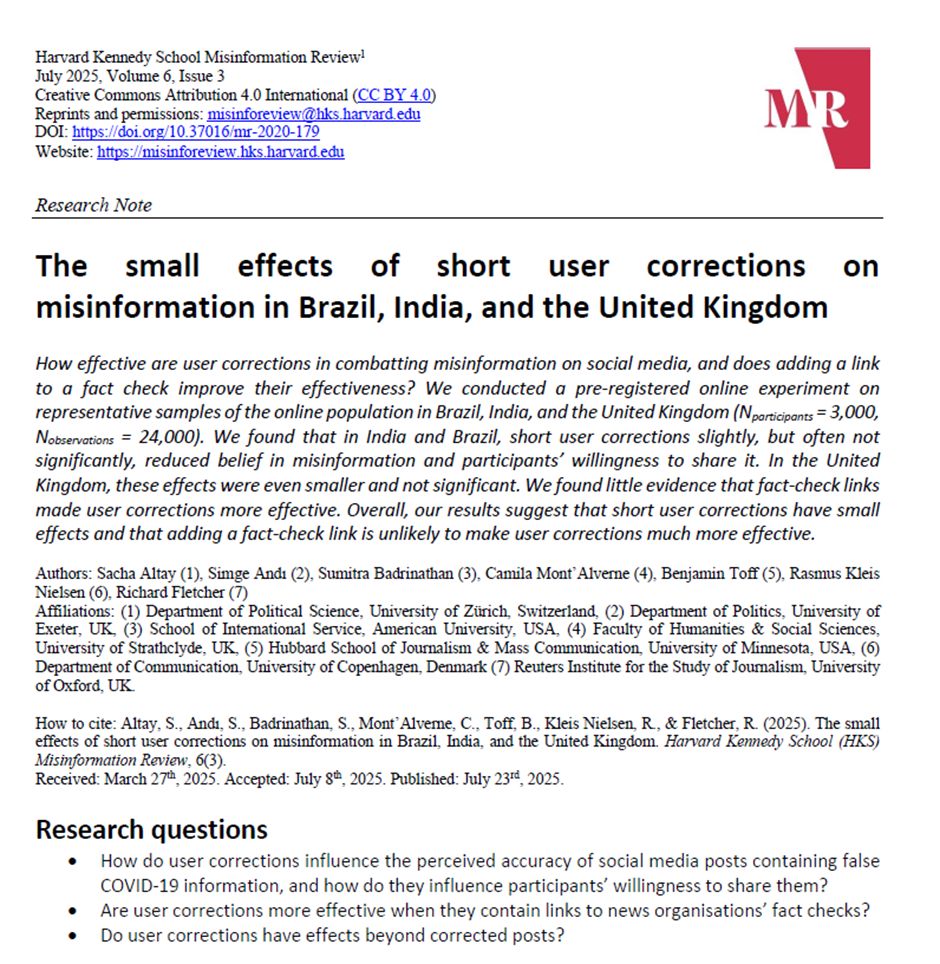
How effective are user corrections on social media, and does adding a link to a fact check improve effectiveness?
In piece led by @sachaltay.bsky.social we find corrections have small effects, adding a fact-check unlikely to make them more effective misinforeview.hks.harvard.edu/article/the-... 1/6
23.07.2025 13:03 — 👍 16 🔁 13 💬 1 📌 2

French and German leaders aim to defuse tensions over fighter jet
Disputes over governance and workload plague weapons programme that is crucial to European defence ambitions
“There is no point in making plans that are solely political; one needs a plan that works on an industrial and technical basis.” (Let alone effective demand.)
Useful reading for those thinking about roads towards reduced EU reliance on US and Chinese tech on.ft.com/4kUtnAj
23.07.2025 11:33 — 👍 3 🔁 1 💬 0 📌 0
Creator of 📰 News feeds, @xblock.aendra.dev, @moji.blue, founder of @shoots.green, co-organiser @atproto.london.
Opinions my own and usually terrible.
she/her/ze/hir 🏳️⚧️
🌐 aendra.com
💻 github.com/aendra-rininsland
🗞️ ft.com/æ
Putting human agency back into technology. Brussels, 🇪🇺.
• tech, governance, science, politics, philosophy, infrastructure, cats, terrible puns
• blog: https://berjon.com/
• fmr W3C, NYT, ScienceAI, Protocol Labs
• he/him/Ishmael
• Signal robin.77
Investigative journalist. New York Times Contributing Opinion Writer. Founder, Proof News, The Markup. Priors: ProPublica, WSJ. Fellow at Harvard Shorenstein Center. Signal: Julia.368
Sign up for my newsletter: https://buttondown.com/JuliaAngwin
Social Media Explorer 🦆
PhDing; Communication; HebrewU
Founding Member @weareccsn.bsky.social
🤳🏽 Content Creators
🧲 Audiovisual Memes
🧨 Algos and Hate
📵 Tech Appropriation
👩🏽🎤 TikTok Cultures
Prof at FGV Law School, heading CTS.FGV.br and CyberBRICS.info
Director of CPDP.lat
Personal Views
Broadcaster turned AI implementor managing developing teams in Sweden, Data Scientist, PhD, MSc IT, MSc DS, MBA IT
International Affairs at Coimisiún na Meán, Ireland’s media and online regulator. Digital and media policy, regulation, cooperation.
Former 🇪🇺 Commissioner | Former 🇨🇿 Minister of Regional Development | #grandmother of 5 | #Time100
We are activists, researchers, lawyers and journalists exposing state power across Europe and its borders.
Our work has supported debates, movements and campaigns since 1991.
Access our latest articles: https://linktr.ee/statewatch
Vært på Prompt - DRs techprogram. Techanalytiker i DR Nyheder. Med hang til københavnerier. Twitter-detox i snart et år.
Researching global tech policy at the WZB Berlin. 📕: The Politics of Platform Regulation - How Governments Shape Online Content Moderation (out now OA 🔓) https://academic.oup.com/book/56385
Brussels Playbook co-author, host of EU Confidential podcast at POLITICO Europe
swheaton at politico dot eu
Working on surveillance technology, migration, welfare.
Collaborating with public interest newsrooms and human rights orgs.
Bridging and connecting.
Previously at Privacy International, Open Migration, TechPresident.
Prof @Goldsmiths U of London | digital infrastructures, tech & AI in global south | New Book: 'Technocolonialism: when technology for good is harmful' https://tinyurl.com/4ceyvc3s | New project: reimagining digital ID https://tinyurl.com/bdfawt64
Ukrainian academic living in Ireland. I study digital media, civic mobilisation, & networked authoritarianism. Nature & cats keep me sane. #StandWithUkraine 🇺🇦
Professor at UW-Madison. I’m an antiracist, white cis woman who’s pansexual and a trans ally. I study press freedom and international news from a decolonial and feminist perspective. Author of The Fixers: the Underground Labor of International Reporting.
Prof of Media and Communication at the University of Edinburgh. Based in Politics/IR. Researching #AI, #Journalism and #Public Service Media. Views own. She/Her
Professor of Media and Global Development. Researching press freedom, international news and media influence on aid. University of East Anglia.
University Professor & Editor-in-Chief of @JMCQuarterly.bsky.social. ✍️ Global journalism. 🌎 Political news reporting. 🧐 Refugee communications. ☕️ and 🍫. *NB: Views my own.
Assistant Professor. Author of 'Post-Truth, Fake News and Democracy' (https://t.ly/1JHye), University of Copenhagen, Firstgen 🎓. he/him. Free access to my work: http://www.johanfarkas.com/research

